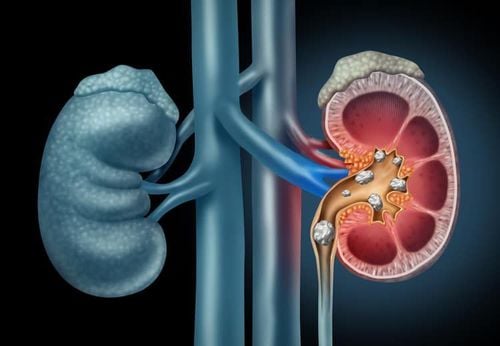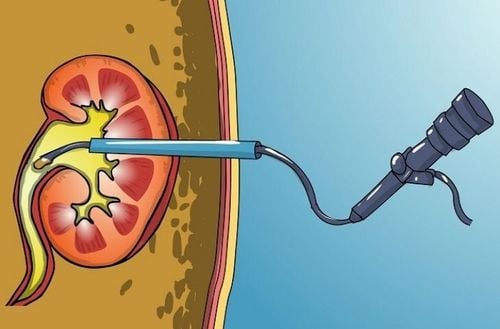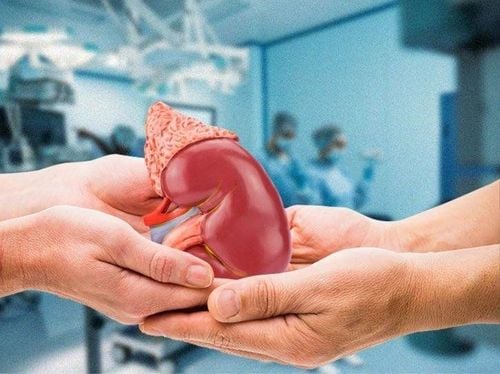1. Who usually suffers from shivering when urinating?
Shivering when urinating can happen to anyone, and can occur in childhood. You might see a baby shivering without any reason when he needs a diaper change.
This can be a funny sight – or an alarming phenomenon, depending on the level of the shivering. However, you should not worry because this is a normal reaction of the body and does not cause any serious problems.
Although chills and shivering when urinating can happen to anyone, some people may experience the shivering more than others. There are some hypotheses that this phenomenon is more common in men, but no research has been done to confirm this.

2. What causes you to shiver when urinating?
2. The cause of shivering when urinating.
Although the exact cause of shivering when urinating is still unclear, one hypothesis has been put forward that changes in body temperature in the groin area cause shivering in some people.
When you take off the clothes to go pee, this exposes part of your body, causing the sudden decrease of body temperature. This makes you feel colder, and as a result, your body may shiver in an attempt to generate heat and keep you warm.
One hypothesis has been put forward to explain the shivering when urinating is that the release of urine out of your body causes the sudden decline of body temperature because some of the heat has escaped.
Shivering when urinating is also thought to be related to the central nervous system (CNS), or more specifically, mixed signals in the nervous system by the central nervous system that controls your bladder.

The peripheral nervous system sends information from the brain and spinal cord to other parts of the body. This part of the nervous system also includes the autonomic nervous system (ANS), which regulates involuntary body functions.
According to Caleb Backe, a health and wellness expert at Maple Holistics, the sympathetic nervous system controls the process of when you urinate.
The ANS is divided into two parts: the parasympathetic nervous system and the sympathetic nervous system. The sympathetic nervous system regulates the reflexions of your body. The parasympathetic nervous system makes you relax and bring it back to rest.
When your bladder is full, it stimulates nerves in the spinal cord called sacral nerves. This activates the parasympathetic nervous system, causing the wall of your bladder to prepare to push urine out of your body. When urine leaves your body, your blood pressure decreases, causing a response from the sympathetic nervous system.
The sudden decrease in blood pressure causes the reaction from the sympathetic nervous system, a part of ANS is related to the reactions of the body. The experts illustrated that when a sympathetic nervous system detects a low blood pressure condition, it will replace a neural transmitter called catecholamine to stabilize blood pressure, take it back to balanced status. When you urinate, the sudden increase of catecholamine causes shivering. The sympathetic nervous system releases neurotransmitters called catecholamine to recover the blood pressure.
This causes mixed signals between two parts of the autonomic nervous system, causing shivering when urinating.
Some experts show that shivering when urinating is more common in men, this may be explained by the fact that men often stand up to urinate - which can cause a sudden drop in blood pressure, which is thought to be the cause of shivering in men. Additionally, blood pressure tends to increase when standing. Since men often stand up to urinate, their bodies experience a sudden drop in blood pressure. This may explain why men urinate more than women.

No matter the cause is, you should not be worried about this phenomenon because it is not harmful and does not cause any serious problem to your health.
Until now, the experts have not discovered the exact reason why people shiver when urinating.
Shivering might be caused by the sudden decrease in body temperature, or the mixed signals in your nervous system. It is often considered harmless.
However, this does not mean you should overlook any unusual occurrences during urination. You should promptly visit a medical facility for diagnosis and timely treatment if you experience fainting, dizziness, a burning sensation while urinating, or notice blood in your urine.
To arrange an appointment, please call HOTLINE or make your reservation directly HERE. You may also download the MyVinmec app to schedule appointments faster and manage your reservations more conveniently.













